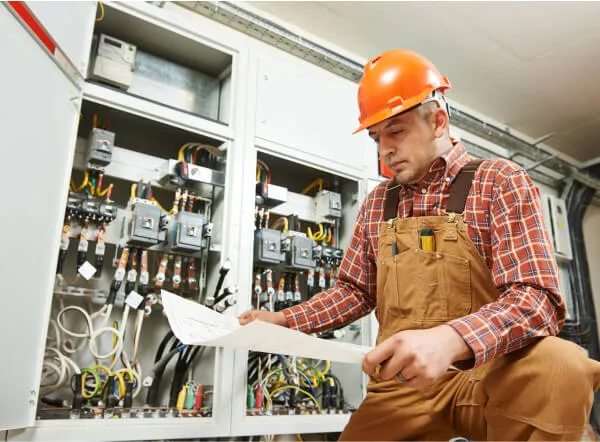Mining Technology

Mining technology professionals include miners and on-site supporting workers who make mining possible. Continue reading to learn more about the field, employment outlook data, available career options and training requirements.
<h2 id="section---IsMiningTechnologyForMe">Is Mining Technology for Me?</h2>
<h3 id="section---CareerOverview">Career Overview</h3>
<p>You'll have a wide variety of job options in the field of mining technology. The specific duties and job titles depend upon the natural resource being mined, such as coal or metals, and the method being utilized, such as surface or underground mining. Job tasks and titles also reflect the mining equipment and infrastructure needed to support a mine's activities.
</p>
<p>Extraction workers withdraw the natural resources and operate machinery. Other mining technology jobs you might pursue don't involve extraction, including supervisory, repair, construction, installation and maintenance positions at mining sites. Mine carpenters, electricians, mechanics and similar workers usually receive specialized training to handle extreme working conditions. The ability to work underground or in other extreme conditions and adherence to safety procedures are just some traits you'll need to succeed in the mining industry.
</p>
<h3 id="section---EmploymentOutlookAndSalaryStatistics">Employment Outlook and Salary Statistics</h3>
<p>The U.S. Bureau of Labor Statistics (BLS) reported that extraction workers earned a median annual salary of $40,650 in 2012 and employment opportunities were expected to grow about 16% between 2012 and 2022 (<i>www.bls.gov</i>). According to the BLS, first-line supervisors of extraction and construction workers earned a median yearly wage of $59,700 in 2012 and job opportunities were predicted to rise more than 23% between 2012 and 2022.
</p>
<p>Most mine foremen earned between $41,046 and $105,457 with bonuses in 2014, <i>PayScale.com</i> reported, while most coal miners earned between $25,743 and $68,232 with bonuses. Mine managers earned a median salary of $119,205 in 2014, <i>Salary.com</i> said.
</p>
<h2 id="section---HowCanIWorkInMiningTechnology">How Can I Work in Mining Technology?</h2>
<h3 id="section---EducationAndTraining">Education and Training</h3>
<p>You'll need to pass a drug test and possibly a basic skills exam to get hired as an extraction worker. Most employers want extraction workers who are high school graduates. After getting hired you could receive on-the-job training. Technological advances in mining have made formal training more important, however. Many employers now favor hiring extraction workers who have completed a high school vocational mining program or graduated from a post-secondary mining technology program.
</p>
<p>To get hired for the majority of jobs in mining repair, construction, installation and maintenance, you'll need vocational training or work experience. Another qualifying option for you to consider for these support jobs is studying mining technology and earning a certificate, an associate's degree or a bachelor's degree.
</p>
<h3 id="section---TopicsOfStudy">Topics of Study</h3>
<p>Mining technology programs are typically taught at community and technical colleges or universities. You can expect classroom studies combined with hands-on training in real or simulated mines. Some programs are offered in conjunction with apprenticeships. Post-secondary programs in mining technology are most frequently presented at the certificate and associate's degree levels.
</p>
<p>Mining technology studies typically examine such topics as environmental factors, mining methods and safety, as well as mine communications, ventilation and equipment use. Courses may include welding, electrical service, mine atmosphere and computers, as well as mining laws, industrial mechanics and management topics. Upon graduating, you may qualify for jobs including operator, electrician, repairman, mechanic, foreman, front-line supervisor and other mine management positions.
</p>
<h3 id="section---Certification">Certification</h3>
<p>Federal and state governments regulate the mining industry. You must meet certification requirements as a new miner and also to attain some advanced jobs. Federal law stipulates that all mines must have a safety-training program for new miners and annual refresher training for experienced miners.</p>


.svg)